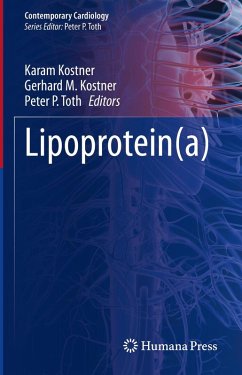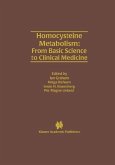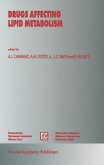Lipoprotein(a) [Lp(a)] is a unique lipoprotein that has emerged as an independent risk factor for cardiovascular vascular disease. Data from case control, epigenetic and mendelian randomization studies indicate that people with elevated Lp(a) have a two-fold to four-fold increased risk of cardiovascular events compared to people with low Lp(a) levels. Despite this risk, awareness of Lp(a) is still very low among health care providers. Even cardiologists often overlook Lp(a), in part because Lp(a) is not as well-understood as other risk factors and treatment options are still very limited.
This book offers an authoritative and comprehensive overview of Lipoprotein(a). It provides an in-depth review of all aspects of Lp(a), from pathophysiology to metabolism. Chapters offer the reader a contemporary view of the important roles of Lp(a) as a risk factor for cardiovascular disease. In addition, this volume discusses the clinical implications of elevated Lp(a) and current and future therapies.
Lipoprotein(a) is an essential resource for physicians, medical students, residents, fellows, and allied health professionals in lipidology, cardiology, endocrinology, pharmacotherapy, and health promotion and disease prevention.
Dieser Download kann aus rechtlichen Gründen nur mit Rechnungsadresse in A, B, BG, CY, CZ, D, DK, EW, E, FIN, F, GR, HR, H, IRL, I, LT, L, LR, M, NL, PL, P, R, S, SLO, SK ausgeliefert werden.









